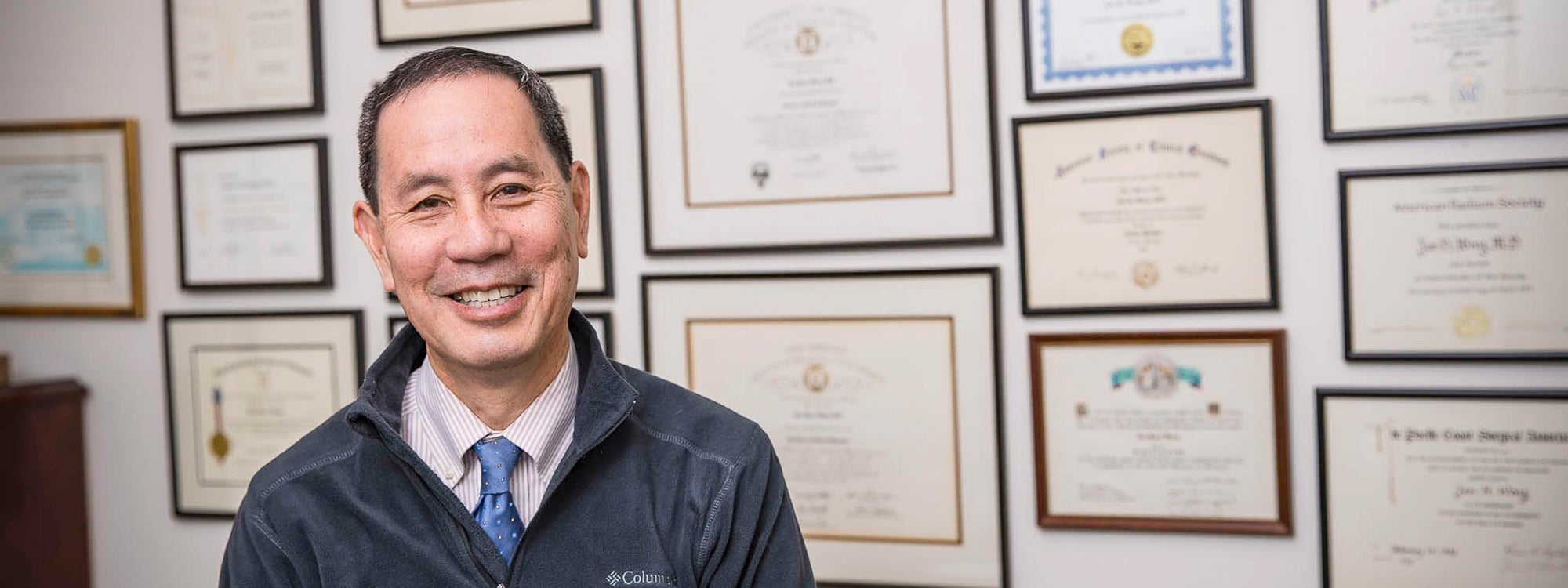IMPROVING QUALITY OF CARE
ECU oncologist awarded grant to improve breast cancer care in rural eastern North Carolina
A surgical oncologist at ECU’s Brody School of Medicine was recently awarded a grant aimed at improving the care provided to breast cancer patients across the region.
Dr. Jan Wong received $236,000 from the National Comprehensive Cancer Network and Pfizer Independent Grants for Learning & Change to boost the quality of care offered to patients in rural and underserved areas of eastern North Carolina.
“If you look at cancer mortalities, there are several things that predict a poor outcome. One of these things is rural residency,” said Wong. “There are a couple theories on why this is a factor. One is…risk of disease is more prevalent in minorities, and the other is barriers to health services that rural residents have to overcome – including variations in care.”
Wong said some rural residents lack the financial resources to travel to large urban facilities that might have more modern technology, so he’s working to ensure they can get the same caliber of care at their smaller community hospital.
The new grant will enable Wong and his team to engage regional oncologists to establish evidence-based clinical pathways to guide their patients’ care. These pathways, or care maps, are plans of action that include each step in a treatment regimen and could ultimately improve outcomes for patients.
The grant also will be used to enhance the use of a comprehensive electronic medical record system to help assure adherence to these evidence-based clinical pathways.
The system would require physicians to enter the clinical stage of the cancer and any health conditions and data that could affect treatment options for their newly diagnosed breast cancer patients. This shared information will enable physicians from multiple disciplines to meet in a virtual “cancer conference” and make recommendations for the best course of treatment for each patient.
The goal is to be able to quickly review 85 percent of newly diagnosed breast cancer patients in this manner before any treatment begins, Wong said. Currently, physicians may not receive a complete medical picture when they’re asked to review a patient’s record and make treatment recommendations.
“We need to better standardize what we’re doing so we don’t miss opportunities to improve patient care,” said Wong.
“I’m not sure that we can change all the outcomes,” said Wong, “but I’m hoping to demonstrate that we can deliver quality care across our entire health care system, from a small hospital in Duplin County to a large hospital in Greenville, so that any patient who enters into those health care facilities can feel comfortable that they are going to receive the same quality of care that they would at any larger urban cancer center.”
According the Centers for Disease Control and Prevention, breast cancer is the most common form of cancer in women, regardless of race or ethnicity. The American Cancer Society reports that 1 in 8 women will be diagnosed with breast cancer.
